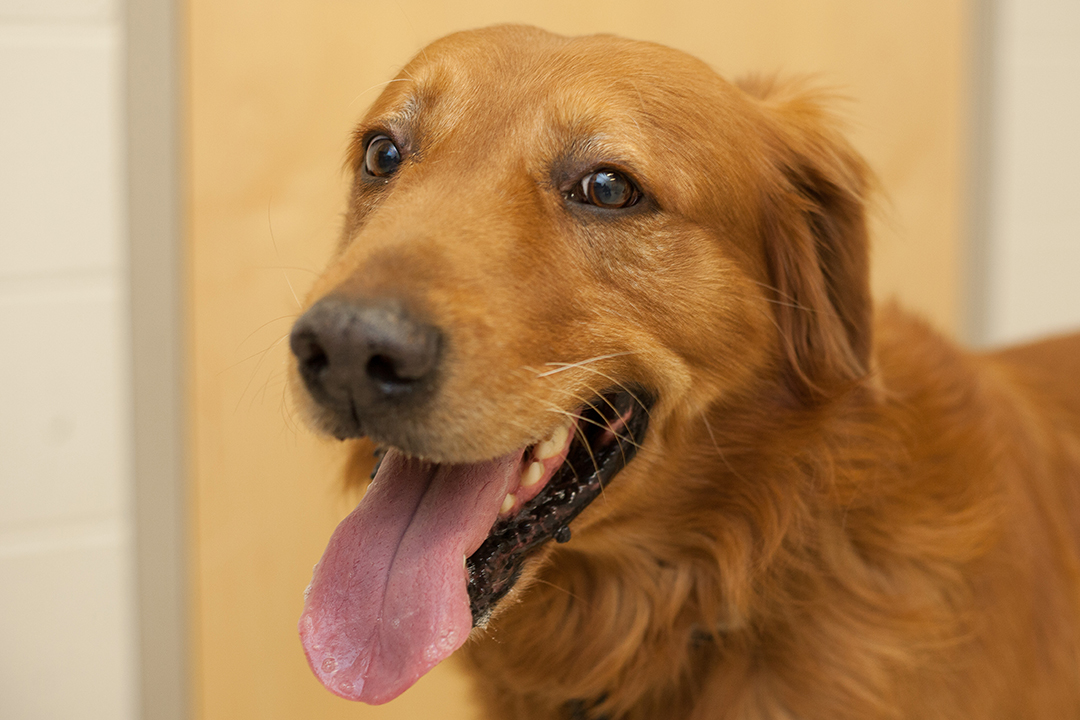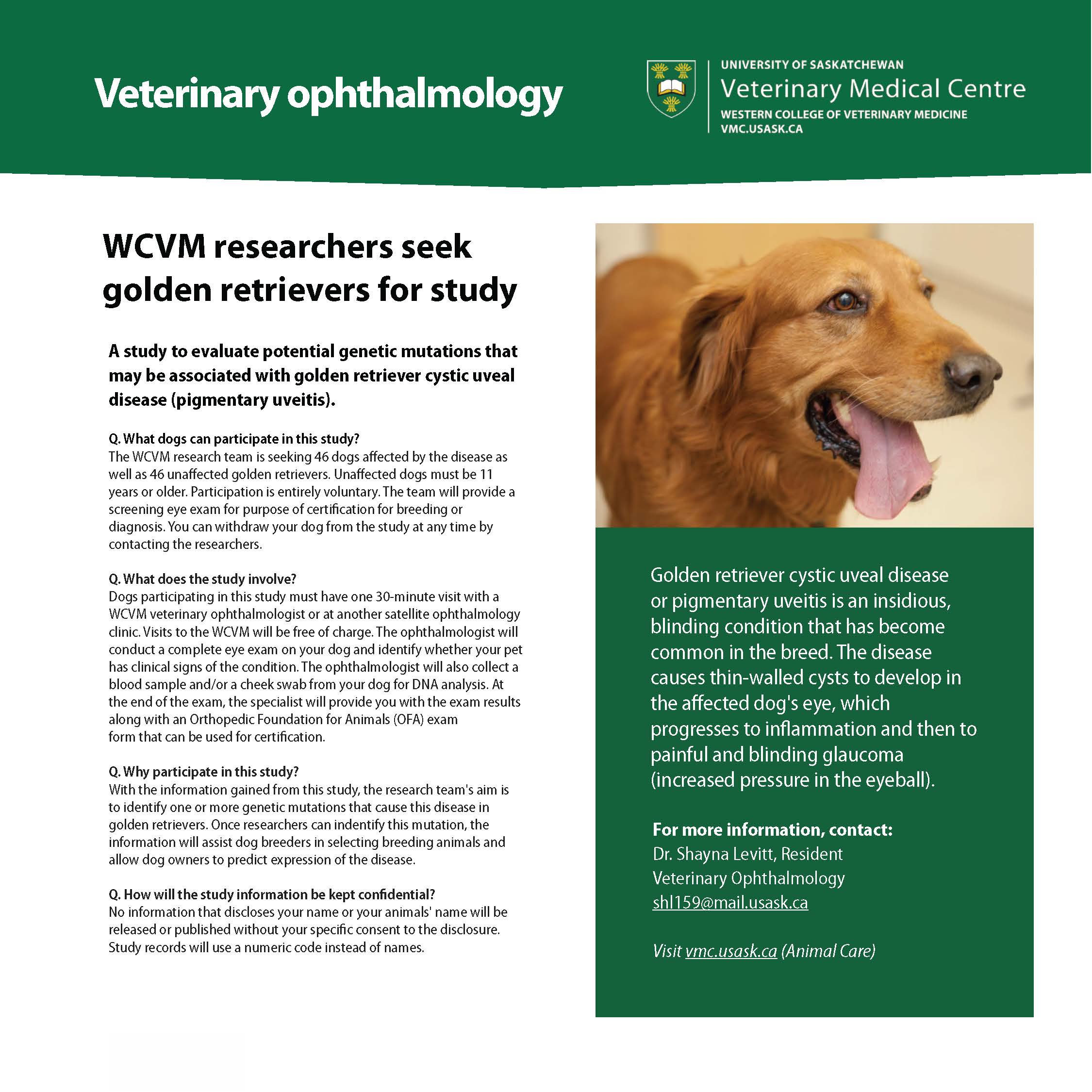
Eye disease study requires golden retrievers
Do you have clients who own golden retrievers? Please let them know about this opportunity to participate in a genetic study of cystic uveal disease or pigmentary uveitis.
Golden retriever cystic uveal disease or pigmentary uveitis is an insidious, blinding condition that has become common in the breed. The disease causes thin-walled cysts to develop in the affected dog's eye, which progresses to inflammation and then to painful and blinding glaucoma.
A team of researchers from the Western College of Veterinary Medicine (WCVM) is conducting a study to evaluate potential genetic mutations that may be associated with this disease in golden retrievers. Pedigree analysis from Western Canada has confirmed that pigmentary uveitis is an inherited disease but the genetic mutation is not yet known.
Since most dogs with pigmentary uveitis aren't diagnosed until they're middle aged or older, affected dogs have often been bred multiple times before their breeder is aware of the condition. As a result, dogs with pigmentary uveitis have passed on the disease to their offspring — further spreading the condition in the breed.
What dogs can participate in this study?
The WCVM research team is seeking 46 dogs affected by the disease as well as 46 unaffected golden retrievers. Unaffected dogs must be 11 years or older.
Participation is entirely voluntary. The team will provide a screening eye exam for purpose of certification for breeding or diagnosis.
Owners can withdraw their dogs from the study at any time by contacting the researchers.
What does this study involve?
Dogs participating in this study must have one 30-minute visit with a veterinary ophthalmologist at the WCVM Veterinary Medical Centre, or at another satellite ophthalmology clinic. Visits to the WCVM will be free of charge.
The ophthalmologist will conduct a complete eye exam on the dog and identify whether the animal has clinical signs of the condition. The ophthalmologist will also collect a blood sample and/or a cheek swab from the dog for DNA analysis.
At the end of the exam, the specialist will provide the owner with the exam results along with an Orthopedic Foundation for Animals (OFA) exam form that can be used for certification.
Why should pet owners participate in this study?
With the information gained from this study, the research team's aim is to identify one or more genetic mutations that cause this disease in golden retrievers.
Once researchers can indentify this mutation, the information will assist dog breeders in selecting breeding animals and allow dog owners to predict expression of the disease.
How will the study information be kept confidential?
No information that discloses the names of owners or their dogs' names will be released or published without specific consent to the disclosure. Study records will use a numeric code instead of names.
Contact information
If you know of a dog that is eligible for participating in this study, please ask the dog's owner to contact:
Dr. Shayna Levitt
Resident, Veterinary Ophthalmology
shl159@mail.usask.ca
Download the owner information and consent form


